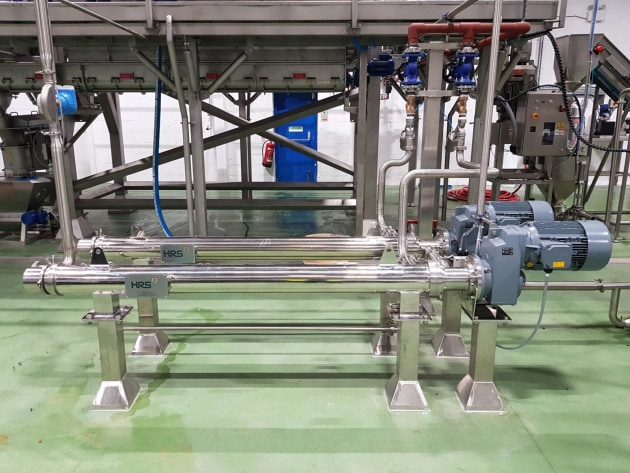A family-owned agribusiness in the UK wanted to add new income streams to the business. HRS Heat Exchangers provided the equipment to do so.
Family-owned for four generations, Huntapac is a leading UK grower and supplier of root crops such as carrots and parsnips.
Following a reorganisation of the business in 2019, the company wanted to develop new value-led product options and so installed a state-of-the-art line to produce carrot powder, with a heat exchanger from HRS Heat Exchangers forming a key part of the new process.
Established near Preston in northern England by William Hunter in 1942, Huntapac initially grew a range of crops for fruit and vegetable markets in the Northwest, before starting to supply leading supermarkets almost fifty-years ago.
The company was a major producer of root crops (carrots and parsnips), salads and brassicas (such as cauliflower and broccoli) until a few years ago, when it decided to rationalise its operations and concentrate solely on the root crops.
The business grows more than 1300 hectares of carrots and parsnips across the UK, from Suffolk to Scotland, all of which are taken to the company’s factory at Holmes near Preston for washing and packing.
With the increased focus on root crops, the company was keen to add value to the five per cent of the crop which is not suitable for its packing customers and looked at a number of options before deciding on the production of carrot powder.
“Five per cent may not sound like a lot, but when you are washing up to 400 tonnes of carrots a day, it soon adds up,” says Huntapac commercial director Steven Kay.
“We researched a few methods because there are lots of different drying techniques available, and we felt that the process that was right for use was to puree the carrots, put them over a drying drum and then mill the flake that results into a powder.”
In early 2020, plans began in earnest for the powder production line. As the first of its kind in the country, there was extensive consultation between all the parties involved, including equipment suppliers such as HRS Heat Exchangers.
The process begins when the carrots are diced and then pureed, after which they are fed into the heat exchanger. This consists of two HRS R Series rotary scraped surface heat exchangers placed in series, which raise the temperature of the carrot puree from 10 °C to 60 °C.
As well as the heat exchangers themselves, HRS supplied two feed hoppers and an HRS BP Series positive displacement pump to feed the puree into the heat exchanger. The heat for the process is supplied from a dedicated steam boiler and the line has a capacity of 500 kilograms of puree per hour. The warmed puree is then passed over a drying drum where it is dried to create a flaked product which is milled down into the finished powder.
“Pre-heating the puree before the drier performs two main functions,” explains HRS UK sales manager Andy Ensor.

“Warming the puree makes it easier to move through the line as it has less resistance, but the biggest benefit is that it reduces the amount of energy needed to dry the puree making the overall process more efficient.”
Production of carrot powder began in the first half of 2021 and the line now produces around 60 kilograms of dried finished product an hour. The carrot powder is produced under Feed Materials Assurance Scheme (FEMAS) accreditation and is used as an ingredient in animal feed.
“With the tight margins involved in fresh produce, it is important to maximise the value of the crop which has cost you money to grow, and this line allows us to utilise the entire crop,” adds Kay.
“The line has been designed to be able to handle other crops, but we have initially chosen to focus on carrots and although we have had to make tweaks as you do with any new process, we are now very happy with the quality and of the product that we are producing.”






